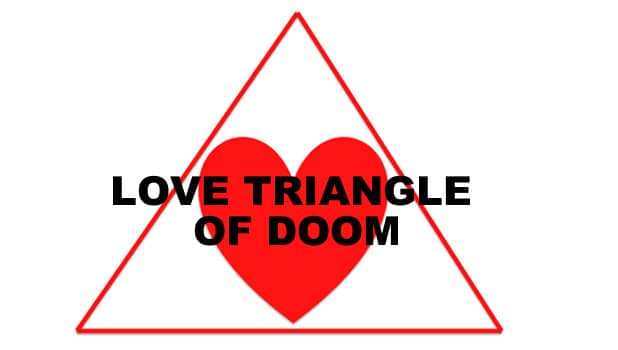So this is a story as old as they come, our very own Shakespeare loved a good triangle! And we’ve stayed true to our roots by creating the same age-old narrative in the world of talent acquisition, through our wonderful employer brand.
See the thing is, we want to attract the best talent, and we spend hours agonising over identifying and attracting unicorns. So much so that we focus on what we can’t have and often what’s probably not even right for us or doesn’t even exist.
We allow hiring managers to present the skills of their teams and talent as being special and different to that of our competitors and as such we create a wall around our organisation. Barriers that become too restrictive to allow the amazing talent we desperately want, to even get a look in.
We think we want ‘developers’, the whole world wants developers, yet they must be the right type of developer – if you know what I mean!
Well, actually I don’t think I do!
I get it, there are certain skills that are required to do a job, and there is a limit to what can be achieved without those skills. But if we tell the world how amazing we are, only to turn away those that are the most excited and engaged in our narrative, then what is the point and what impact will it have on our organisation?
People go to exceptional levels to chase their dream, and if theirs is working for our organisation how do we rationalise crushing their dream? And then giving that dream to a candidate who may have never really had the same passion for the organisation and its culture?
Jeffrey Roeffen is a great example of somebody who had such a passion and ambition to work for Nike, so he decided to make it his career focus.
What value do we place over real passion for an organisation and/or a product? We present ourselves as ‘best in class’ and then recoil at the thought of somebody laying themselves bare!
And this is a personal story, I myself on searching for jobs in the past have shown an interest and real passion for organisations that I know well, where there is a direct correlation between what they do and the skills I have in acquiring talent in their sector.
But no matter what I’ve tried and even at the point at which they have shown themselves to require somebody like me, a simple thanks but no thanks is sent in response.
So what does that do for the employer brand if out of the thousands or hundreds of thousands of potentially good candidates that you cultivate into brand aficionados, you then throw away in the blink of an eye with not so much as a …. Off?
For me I’ll never buy their product, look for their services or consider them again. I certainly won’t recommend them to others either. Why? Because I’m not stupid enough to be scorned twice. I have too much self-respect for that!
It’s one I struggle with and wonder if our employer branding is not highly targeted towards a select group of people, who have already been identified as high potentials or have the skills required to do the job, are we not just wasting almost everybody’s time?
And how do we target those individuals when actually most organisations are really struggling to define what good looks like and therefore what the real skills and criteria are of those who will succeed in the role.
Do we not have a responsibility to stop chasing Unicorns and to stop our organisation becoming the Unicorn that others enthusiastically and blindly chase?
So Employer Branding has certainly created traffic but, as a by-product, we’ve created traffic jams. Large groups of people chasing dreams, that ultimately – for most – will never come true.
I was at an RL100 event last week and Adam Gordon from Candidate ID was presenting with Rob Mould, Director of Specsavers Recruitment Services and John Hull, Head of Resourcing Delivery at Nationwide.
There they discussed the power of connecting with your targeted audience at the point at which they are most likely to want to engage!
But more importantly with the information, content and narrative that best meets their needs at that point.
So a person you ‘target’ may not be a candidate yet. However, they may still be interested in your organisation and later on they could be interested in careers. But shoving careers content in their face at the point at which they want to engage in another way, is damaging to the relationship and your reputation.
So I think Candidate.id has cottoned on to something that will only grow in significance over time. I’m now interested to explore how smaller organisations with less focus on volume recruitment and with greater variation in recruitment needs can get with the program.
So the Employer Brand and understanding your EVP is great, however without a targeted approach we’ll continue to push volumes of people towards our brand and at the same time potentially risk losing volumes of future talent, through engaging them at the wrong time and in the wrong way.






